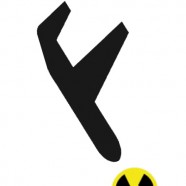Hong Kong and elephants
HONG KONG and PARIS (14 April 2015) — Today, a coalition of 51 NGOs coordinated by Robin des Bois and WildAid Hong Kong co-signed and sent a letter to Wong Kam-sing, Hong Kong’s Secretary for the Environment, demanding that the Hong Kong Government stop issuing any new import licenses and re-export licenses for pre-Convention elephant ivory (the letter pdf).
What does this mean, and how might this action help save Africa’s elephants?
The European Union is the primary exporter of alleged pre-Convention ivory, much of it imported by Hong Kong with the ultimate destination being mainland China ivory carving factories. This is facilitating an illegal ivory trade that’s fueling an elephant poaching epidemic in Africa.
Hong Kong and elephants
HONG KONG and PARIS (14 April 2015) — Today, a coalition of 51 NGOs coordinated by Robin des Bois and WildAid Hong Kong co-signed and sent a letter to Wong Kam-sing, Hong Kong’s Secretary for the Environment, demanding that the Hong Kong Government stop issuing any new import licenses and re-export licenses for pre-Convention elephant ivory (the letter pdf).
What does this mean, and how might this action help save Africa’s elephants?
The European Union is the primary exporter of alleged pre-Convention ivory, much of it imported by Hong Kong with the ultimate destination being mainland China ivory carving factories. This is facilitating an illegal ivory trade that’s fueling an elephant poaching epidemic in Africa.
Rhino traffic transits through Cherbourg
John Slattery, a member of Rathkeale Rovers (Rathkeale vagrants), was arrested on 6 April 2015 in the port of Cherbourg by the border police. He was landing from a car ferry arriving from Ireland. He was subject of an international arrest warrant. He is in custody for a period of 60 days, the time for justice of the United States to transmit its request for extradition.
The Rathkeale Rovers come from a community of people originating from Rathkeale in Limerick County in Ireland. They are sought by Europol and police worldwide. They specialize in theft, receiving stolen goods and illegal sale of antiquities. They are suspected of having participated in several rhino horn thefts from European museums. A horn of 8 kg was stolen from the Museum of Natural History of Rouen (Normandy) in March 2011. The neighboring Museum of Le Havre was also robbed but the stolen horn was in resin, as museum curators had, as a precaution, removed the authentic horn from the exposed trophy.
Rhino traffic transits through Cherbourg
John Slattery, a member of Rathkeale Rovers (Rathkeale vagrants), was arrested on 6 April 2015 in the port of Cherbourg by the border police. He was landing from a car ferry arriving from Ireland. He was subject of an international arrest warrant. He is in custody for a period of 60 days, the time for justice of the United States to transmit its request for extradition.
The Rathkeale Rovers come from a community of people originating from Rathkeale in Limerick County in Ireland. They are sought by Europol and police worldwide. They specialize in theft, receiving stolen goods and illegal sale of antiquities. They are suspected of having participated in several rhino horn thefts from European museums. A horn of 8 kg was stolen from the Museum of Natural History of Rouen (Normandy) in March 2011. The neighboring Museum of Le Havre was also robbed but the stolen horn was in resin, as museum curators had, as a precaution, removed the authentic horn from the exposed trophy.










